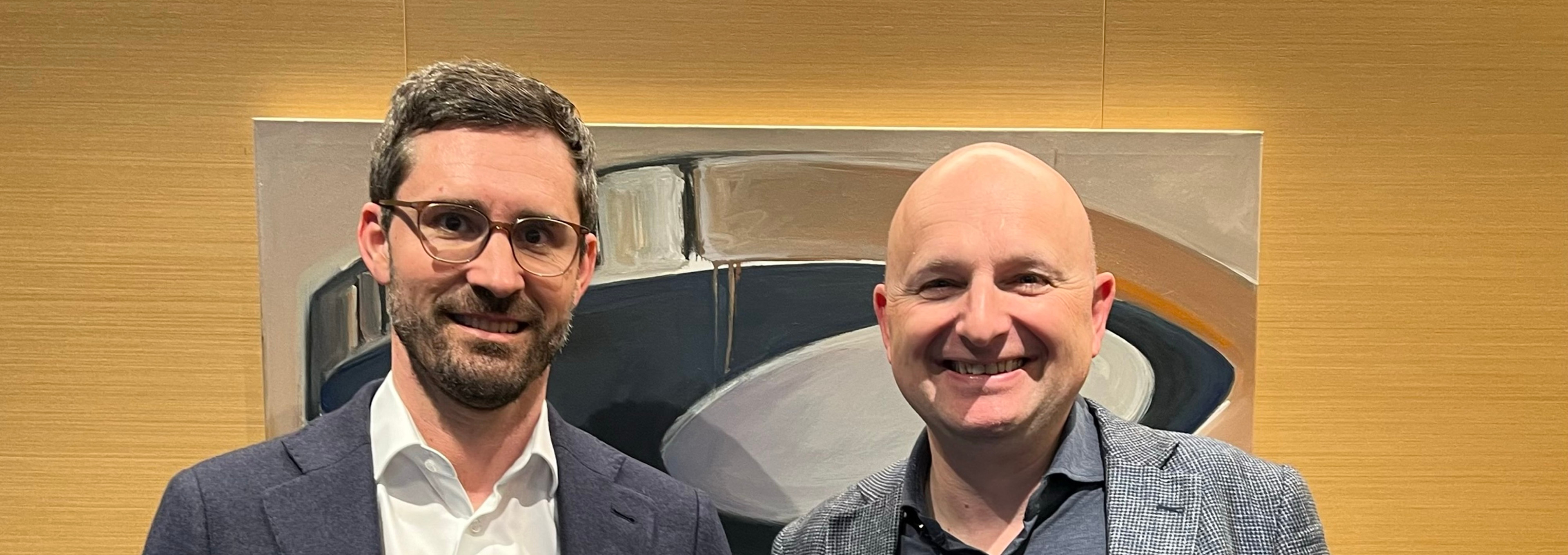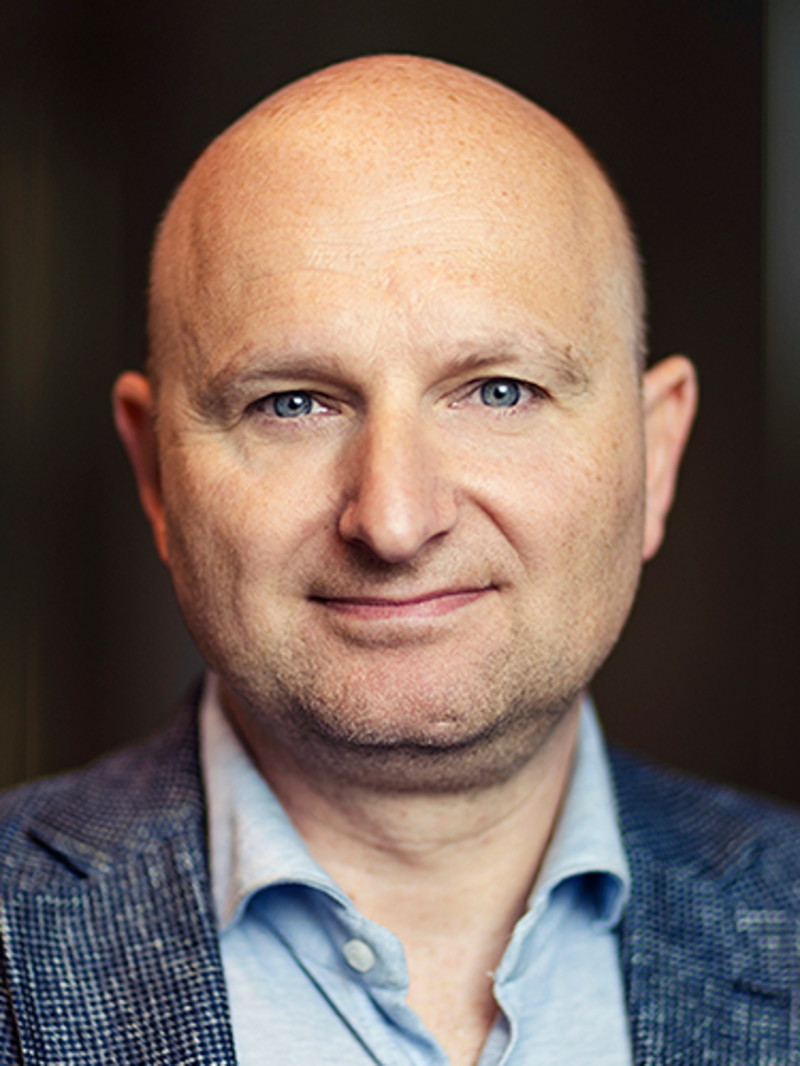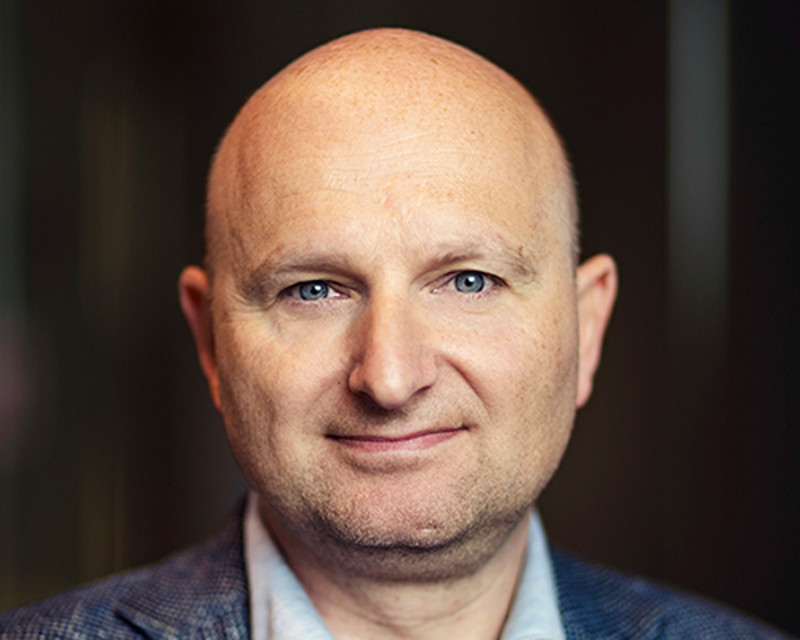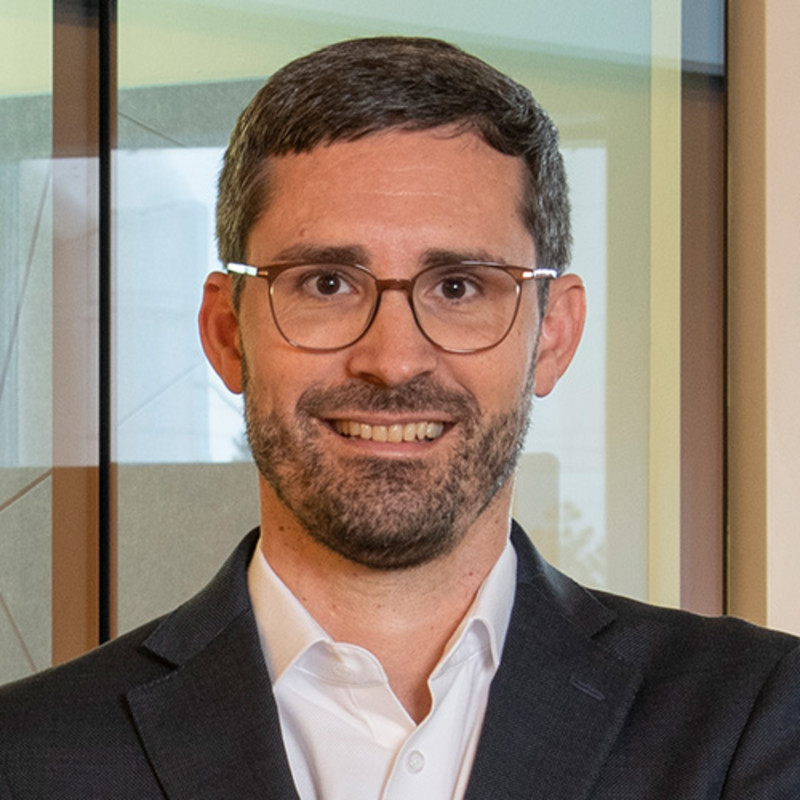

Podcast: Thematic investing – often a tale of two tides
While the returns of the Magnificent Seven stocks dwarfed the performance of thematic strategies in 2023, the tide may slowly be turning. In this podcast episode we talk to two seasoned thematic investors, Jack Neele and Roman Boner.
We do not guarantee the accuracy of this transcript.
This podcast is for professional investors only.
Erika van der Merwe (EM): Thematic strategies were among the investment leaders during the pandemic era, with generally solid performances and enthusiastic investor inflows. The train subsequently shifted with thematic strategies now experiencing net outflows. So what's going on in the world of thematics, and what mindset is needed when buying into this investment style?
Welcome to a new episode of the Robeco podcast.
EM: My guests to discuss this are Roman Boner and Jack Neele. Roman is portfolio manager of the Robeco Smart Energy Strategy and Jack is portfolio manager for Robeco Global Consumer Trends. Welcome, gentlemen. Good to speak to you.
Jack Neele (JN): Thank you Erika.
Roman Boner (RB): Thank you.
EM: Let's set the scene for those who don't know: what is thematic investing, Jack? And if we can speak broadly, how are these themes decided upon or defined?
JN: I think thematic investing, as basically the name says, focuses on longer-term structural themes that shape the world and shape the economy, and thereby it influences which companies become the leaders of tomorrow. And I think for themes, we look at the longevity of the theme, the economic profit that's available, the availability of investment options so that you have enough investment choices. So for themes that we have within Robeco, you can think of the digital transformation, the energy transition, the financial inclusion, industrial automation. So lots of different themes. And I think they provide both return potential but also diversification for clients. So it has been a good source of alpha over the long term.
EM: Roman, incidentally, I had a look at the flows during the course of 2023 by thematic styles. And I see the sustainability-related and particularly the climate-related sort of thematic styles received the most attention and inflows. So tell us about those kinds of themes.
RB: I think the sustainable themes are very similar to what Jack just explained, but I would probably add that sustainable theme products usually go after solving an either environmental or social problem, and not seeing it from a risk lens, more like from an opportunity lens. Like really thinking if that climate change happens and this energy transition is accelerating, where can we find the best long-term investment opportunities? Really focusing on the enablers which help to solve this kind of social and environmental problem, that might be a bit different to general theme investments. And in 2023 the flows were still relatively robust in the energy transition or climate-related funds. That was mainly driven on the back of the energy crisis in 2022, driven by the war in Ukraine, which caused a lot of attention not only from people who were interested in sustainability or carbon emission, but also increasingly from the theme of energy security, making ourselves more independent from fossil fuels from areas which we do not want to support any longer.
EM: Now, quite clearly, by the description that you've both given, these are pretty narrowly defined investment universes. So presumably you have to go about this wisely as an investor, if I see myself as a retail investor. How would such a strategy fit into a broader investor portfolio and what mindset is important? And before you answer, I just want to cite some research. Morningstar published some research toward late 2023, saying there were huge disparities between the returns on thematic strategies and the returns that investors in those funds were receiving because investors were trying to time the market and obviously got it wrong. In fact, over the five-year period to June 2023, investors lost out on more than two-thirds of the potential returns from thematics.
RB: I think this is a very important point, and I always think in a way that especially if you have narrow themes, that you think about theme investing as a satellite. You invest core, you have your bonds, you have your core equity strategies, and then you basically beef up your portfolio with specific alpha opportunity in a single theme. So especially for investors who are interested in the energy transition and believe we are now in the early innings of decarbonization and electrification of the economy, that they really find the product to add to their existing portfolio. But it's important, especially for people who may have shifted, like all of their core into thematic, they got hurt quite a bit the last few years. So really thinking it in a way that having it as a satellite, and that's also what we try, at least here on the energy strategy, that we have a very, very high active share. So most of the names are not part of the normal core global equity benchmarks. And that might differ a bit on your side Jack, right, for consumers.
JN: I think how to position it in in a portfolio also depends on how narrow or how broad the strategy is. And you have indeed a lot of single-theme strategies. So, think artificial intelligence is popular today. But the energy revolution, fintech are all examples of more narrow themes where you target just a specific part of the overall economy, and at the same time there's plenty of multi-thematic strategies, so that are broader. I think our own Global Consumer Trends strategy is also broader by combining the digital transformation, the rise of the middle class, health and well-being into a single product. Then you have much more exposure to much more of the economic sectors. And therefore some of these products can be core thematic offerings, while others may be more of a satellite offering. So I would say it depends, but generally you see a difference between more single-theme and more broad thematic offerings.
EM: OK. So let's go a little bit deeper into some of these concepts. In preparing for this conversation, I found some statements people quoted on thematic investing. I just want to present some of these to you and get your reaction to this. First statement: ‘Thematic strategies, because of their relatable themes and trends, are designed to appeal to retail investors’, and perhaps, to add in brackets my own words, younger, more inexperienced investors. How would you react to that?
JN: I think retail, yes it’s part of the potential client base, definitely. And we also see a lot of wholesale clients, think of private wealth clients, etc., that are interesting clients for thematic investing, given storytelling is an important part of the appeal of thematic investing. You do see, however, that thematic investing is also starting to gain more traction with institutional investors, although that's been happening slowly. Personally I think it's probably less likely that we will have large pension funds as new clients, because thematic investing tends to be relatively broad and not be easily defined in terms of capturing some economic sectors, but really look at it from a broader lens. So that may be a little bit more difficult. But you do see that institutional investors are also becoming more interested in thematic investing.
EM: Roman, I've got one for you, perhaps a tougher one. ‘Thematic investing is all about chasing the latest fads’, and even stronger, a real quote from the Financial Times, ‘themes have reached their peak by the time retail investors can access them’.
RB: Yeah, that's a tough statement. But I think if we take the Smart Energy strategy as an example, and if you look back, Robeco launched the strategy20 years back. I think the theme itself has never been more topical than today. So it's changing, and as a PM we have to adapt to the new world. If we would always just chase the latest trends, then I think we won't make any performance because then you buy at the end of the cycle, you chase momentum and then you're not really creating value for the investors. But investing in themes means also detecting trends early within the themes, position, and then invest for the longer term. And I think that's also what we need to do as theme investors.
JN: I would like to add to that, indeed, because I think we actually try to avoid investing in the latest fads. If we look at things like 3D printing, maybe they were interesting or topical a couple of years ago. But if you looked at that theme, maybe it's currently used in prototyping, etc., but it hasn't really succeeded to penetrate the mass market. And there were also very few investment options. So that's also a theme that we saw come and go, or have a relatively short livable life as an investment theme. And I think that we've managed to successfully avoid some of those traps. So it's really looking at the long term, which themes have longevity and try to avoid exactly the types of hypes or fads that you mentioned.
RB: And, Erica, what you said, in terms of flows I think this one I have to agree on. Flows tend to peak close to the peak of the theme performance. So we always see, when you look back on energy, we saw in 2020 after the Biden election and after Covid, a surge, and we saw it again after Ukraine. So you see a pattern: retail investor tend to invest into the product closer to the peak of those interim cycles of a structural theme. But it's not us, not our product, we’re available for 20 years. So it's more the timing sometimes, because it gets most attraction and then it also creates the highest inflows during those times.
EM: Then, what's the best approach? Last question in this category: active or passive? What would you, I mean obviously you’re active investors, but doing research, so many passive instruments are available here.
JN: I would say thematic actually lends itself to being active. I think for a lot of investors, probably a passive approach, just investing in an MSCI World ETF, etc., if you're not really focused on the markets or if you don't follow it and just want to invest for the long term, maybe an MSCI World ETF is probably the best solution for you. If you have a little bit more affinity with financial markets, you want to make your own choices, I think thematic investing actually lends itself because it's definitely a way to get to alpha, or to generate excess returns versus the market, especially over a longer period of time. So I would definitely say that thematic investing is a way for people to move away from the benchmark and to focus more on absolute returns or alpha-generating strategies.
RB: And maybe when you talk within the themes, if you mean also like active/passive in thematic, I think it's even more important to have like an active strategy, as those trends, taking again energy as an example, how it developed over the last 20 years, you might have been investing in natural gas, exploration or distribution, 15 or 10 years back. But nowadays it has all changed again. And you focus really on electrification and renewables. You also need to adapt your strategy. And if you're a passive theme, then you might miss. And we see it also clearly now on those clean energy ETFs which are out on the market, they performed very poorly over the last few years compared to the active managers in the sector.
EM: Shifting focus slightly, wanting to get more perspectives from you from your daily work, but also strategically, how you approach your respective portfolio. AI has been such a headline-grabbing theme for over a year now. Interestingly, thematic strategies focused on AI and robotics were among the few categories that had positive net inflows in 2023. But that aside, in your own strategies, how do you approach this theme of AI in your respective portfolios, if at all relevant to you?
JN: Yes, we have a subtheme that focuses on artificial intelligence. And obviously it's hard to discuss artificial intelligence without mentioning Nvidia, which has been basically the poster child of this AI trend that we are witnessing. But besides, let's say chipmaking obviously, you see companies like Microsoft, Amazon focusing on the cloud and adding AI tools to that. So you see, it's definitely a bit of a big tech theme in the market, right? Because many of the big tech companies also have the financial wherewithal to invest the billions of dollars that are necessary to develop these products. So it's been the well-known companies that have also been taking the lead here, but it's definitely an important part of our portfolio.
EM: And to be clear, that's not investment advice from Jack, but merely describing how he approaches the theme. And his portfolio holdings are available to see online. Roman, what's your approach, if at all relevant in your strategy?
RB: Surprisingly maybe for some listener, it's very important also for the energy sector. And if you think back on the energy strategy, we invest upstream in renewable, we call it midstream in the distribution, and then downstream in management and energy efficiency. And we always had a subtheme called energy efficiency big data, because that we always see coming that the data centers keep using more electricity for solving the tasks. And if you look, for example, at Google Search and compare it now with ChatGPT search or rather an inquiry, it takes up to 15 to 20 times more energy to do that versus a Google search. So immediately you realize how power-hungry those AI chips from Nvidia, for example, are. And that basically means we need to build out a complete new infrastructure or upgrade the existing infrastructure in data centers. So the power load is gonna grow in the US, it's probably today 3-4% of all power is used for data center, that might go up to 8-10% by 2030. You really see like a massive acceleration. And again, it might sound not like a lot, but in terms for a utility, this is a big theme because when you look back the last 20 years you had no electricity growth in in the US as an example, because most of the growth in the economy was done with more energy efficiency. So you didn't really replace your light bulbs with LEDs as an example. So really had no growth. And now growth is coming back, so we're coming back out of a 20-year bear market in terms of demand because of electrification of transport, but also electrification of heating. And now the data center gives an additional kicker. So that's going to change the need for power quite a bit. So that's a very interesting theme. And then back down the road, AI is also going to help us to solve the problem of matching supply and demand of these more intermittent renewables, but also demand usage of electricity.
EM: Another topical issue is the performance of the so-called Magnificent Seven stocks, just as an example of a group of stocks that ran hard, that keep on running. Just with that, as an example, and I'm not speaking specifically about these, how do you, as a portfolio manager, know that it's time to call it a day? It's time to sell and bank your profits.
JN: I see it as a difference between calling it a day and banking some profits. So obviously banking some profits is something we like to do as much as we can. But calling it a day is definitely something, so selling out of a complete position is definitely something we only like to do when we see a substantial change in the longer-term fundamentals, or a change in the investment thesis that was the reason for the original purchase of the company in the portfolio. So it's definitely by focusing on the longer term, you definitely see that sometimes stocks get a little bit ahead of themselves, that's obviously a nice period to take some profits. But just because they've run a lot, that's not a reason to take a complete position out of the portfolio, but rather it's more of a time to take some profits while keeping the focus on the longer term. Because you may be right on a 1, 2, 3-month horizon, that indeed the stock dips a little bit, and that makes you probably feel good about a complete sale. But what I've at least witnessed so often in my career, if I look back I probably wouldn't have trimmed all these positions in Amazon etc. and some of these other longer-term winners, because having kept the position intact for over a long period of time, that would probably have added much more to the overall return of the strategy.
RB: I agree with you, Jack, doing very similar. It's a balancing act of let the win runs and managing your overall risk. And it's also from a portfolio perspective, you have to watch out what does make sense and how much you can let it run. But it's always easy to cut the winner emotionally, very easy, and you rather do the more difficult part, like cutting the losers, which sometimes it's much harder than cutting the winners. And it's a more effective strategy at the end of the day.
EM: OK. The benchmark question. So for thematic investors, I'm sure there's a lot of discussion around which benchmark is appropriate and how your performance is measured against that. Any comments on that? What's your ideal benchmark?
JN: Maybe if I can start, we have a reference index. So we compare ourselves to the broader market. Over a longer period of time, definitely 3 to 5 years, I think it makes sense to evaluate a theme versus how it performs over the broader market. On the shorter term, I think we compare ourselves more to peers. So funds or strategies that have a similar investment universe or similar type of strategy. And I think that's a bit of a balance that you try to make between the short term and the long term.
RB: I agree, Jack. And I think we also have the MSCI world as a reference index. And of course the goal is on the long term to be better and relevant as a theme, that an asset selector also takes more energy as a theme to generate outperformance against overall equity markets. But in the short term, and that's also how we look at it here in our sustainable smart strategies in Zurich. We have so-called STR, Sustainable Theme Reference index, which is an internally created benchmark which only includes companies within the theme where we can invest in, so roughly like 230-250 names. So this gives us a very fair comparison to see how do we do against our investment opportunities. And then as checks we also compare ourselves with the peers. This gives us a bit of a view how we do as a PM within the theme, because sometimes you can have a bad year in terms of theme, like we had last year in clean energy. And then it doesn't matter how well you are as a PM, you're not going to make it up against the MSCI World. And it can also go the other way around that your theme is 30% up against the MSCI World. And it's not all the skillset of the of the PM and the analysts, it’s more we’ve invested in the right theme. So we want to really see what is the alpha we create within the theme.
EM: Well I've got a different set of questions for you guys. First of all: what's your biggest investment life lesson, Roman?
RB: Don't sell the winners too early.
EM: Yes, very topical point.
JN: I was actually going to say the same thing because that's incredibly hard, to let the winners run. Very few stocks have probably been responsible for the majority of returns. If I would have just stayed away and didn't touch those, it would have probably been even better.
EM: Jack, what burning question do you have for Roman?
JN: I think with regards to the energy transition, there's obviously a lot of talk and people would like it to happen faster and faster and faster, and it's never fast enough for probably some people. But what is the realistic or rational way to think about that, about the speed of that transition?
RB: I think we are on a good path and speed is accelerating. And it's also a bit of a base effect. Now we are in the early innings of this transition. But we already have a certain base. If you think about EV penetration, renewable penetration, it's not anymore like 1 or 2%. It's more like 10, 15, 20%. So we’re really getting now to a point where growth naturally slows a little bit down, but still we are on the right path and the moment technology is available at the right price, it will be going by itself. And that's what we also see happening right now. And there are always bottlenecks, either it's financing, either’s it’s the grid, there are always some issues somewhere.
EM: Roman, I know you have a burning question for Jack. What would that be?
RB: On the consumer side, what is going to be the most interesting consumer for you going forward in terms of region, but also in terms of age?
JN: I think that's especially the younger generation because I feel that the younger generation does things differently. Maybe that's the case for every younger generation, but I definitely feel that that's the case for this generation. Definitely sustainability is one of the areas that is much more important for younger generations. So that's probably an area that's of most interest to me right now.
EM: Jack, what personality traits are needed to be an investment portfolio manager?
JN: I think what you need is not to go with the flow of the moment. Because obviously the equity market takes you up to all kinds of highs and lows, but the longer term is really important, that you continue to focus on that. So you should be relatively grounded and keep that focus on the longer term and realize that probably over 95% of the news you hear on a daily basis is noise over the longer term.
EM: Roman, what's your top tip for those listening who want to get into the investments industry?
RB: I think the biggest one is passion and interest, really like having the passion of everything is moving every day. It's also sometimes a bit of pressure-full and takes a lot of energy because you're not having a day like the other one. But it's also the interesting part, that's what I like in our job, we don't have a day like the other the next day. There's almost nothing which repeats itself, but still there are some patterns which repeat and where you can learn from. For me it's always that just having passion about investment, is probably the most important bit to remain interested in investments.
EM: Let's look now to the future of thematic investing and the way you see it from your corners and your areas of specialization. What changes and shifts do you foresee? Let's start with the point of the net outflows that we've seen recently. The style's been relatively unloved over the past two years. What will trigger a change in investor perspective towards thematics broadly?
JN: To be honest, I think flows tend to follow performance. Definitely you've started to see some performance improvements for some of the strategies already. And if that can be maintained, then history shows that flows will follow that. That's a bit of a reference to what we talked about earlier, in terms of a lot of retail investors maybe entering at the wrong time or at the later stages. I think that's probably true from a flows perspective as well.
RB: I would like to add we probably need to see a bit of a broadening of the market and it's maybe a bit less on consumer, but more on the environmental theme, which are much further away from the Magnificent Seven. You kind of invest in the broader market, and that was the part which really didn't really work well the last 12-18 months, where the market was very concentrated and the winners of the Magnificent Seven were really driving the performance. So then if investors compare those strategies against anything else, it always looked like we were lagging. And now we start seeing some stabilization, some broadening of the market already. But as Jack said, flows are always lagging, so probably we're going to see first more of outflows before we’re really see going to see the inflows coming back.
EM: Certainly a sort of a tough game. I speak to so many investors on this podcast on how mentally tough and resilient you need to be, knowing that you would be in and out of favor, but remaining smiling. Jack, you’re always smiling when I see you. Perhaps final remarks on that mental resilience that you have, how do you maintain it? And just remarks on how you see things perhaps changing over the medium term in thematic investing.
JN: One of the interesting things about thematic investing, and maybe investing in general, is that change is the only constant I think we've seen over the years. If I look, for instance, at the digital theme within our portfolio as an example, maybe 10-15 years ago, the focus was on smartphones. Then you had the big tech platforms, maybe they've been successful basically up until today, but you do sense there's a shift more towards services and things like artificial intelligence starting to happen. So you definitely try to position the portfolio to stay in line with the spirit of the times or the zeitgeist. And I think that's one of the things that you constantly need to focus on what's happening, I'm looking obviously at that from a consumer perspective or from a consumer behavior perspective. But you definitely see significant changes over time, even though on a day-to-day basis things may look the same, if you look back and look at it over a longer horizon, you definitely see those changes. So it's important to also take a step back and look at things from a longer term and then it's easier to spot these trends.
RB: I think it’s a good way to say adapting for change, but don't shift your style. Don't shift the way how you invest just, because you have a period the portfolio is not running as expected because again, the investors who choose you, that chose you because you had the way you invested in the past, and there's always periods for any strategy and any PM where you have a bit of more difficult time, but then just keep working, keep asking questions. Do you own the right stuff which you can own? Keep the purity high? Like really not investing in stuff, I could also start investing, Nvidia is a good example, but I don't have like any theme overlap to that. So it's going to be hard to justify why I'm going to invest in Nvidia. But I can start asking myself, do I have an opportunity on power supply going to those chips which get more energy efficient? I mean, we find ways to adapt for it, but don't change the style. That's the worst thing you can do.
RB: Very much agree.
EM: Jack and Roman, thank you so much for your time. It's been fascinating hearing from you.
JN: Thanks a lot, Erika.
RB: Thank you. Erika, good to be with you.
EM: To listeners, thanks for being here with us. Check out the full podcast series. We publish a new episode every month covering a range of investment-related topics. If you subscribe, you'll receive a notification as soon as the new episode is published. In the meantime, please rate the show and share the show link with a friend. This monthly podcast and Robeco’s bi- weekly podcast, In tune with the markets, are available on all major podcast platforms and on the Robeco website. Until next time.
Thanks for joining this Robeco podcast. Please tune in next time as well. Important information. This publication is intended for professional investors. The podcast was brought to you by Robeco and in the US by Robeco Institutional Asset Management US Inc, a Delaware corporation as well as an investment advisor registered with the US Securities and Exchange Commission. Robeco Institutional Asset Management US is a wholly owned subsidiary of ORIX Corporation Europe N.V., a Dutch investment management firm located in Rotterdam, the Netherlands. Robeco Institutional Asset Management B.V. has a license as manager of UCITS and AIFS for the Netherlands Authority for the Financial Markets in Amsterdam.

Open your portfolio to the power of themes
For over 25 years, Robeco has been a pioneering leader in constructing thematic strategies.
Global Consumer Trends F GBP
- performance ytd (31-12)
- 3.89%
- Performance 3y (31-12)
- 14.03%
- morningstar (31-12)
- SFDR (31-12)
- Article 8
- Dividend Paying (31-12)
- No
Smart Energy I GBP
- performance ytd (31-12)
- 31.42%
- Performance 3y (31-12)
- 14.24%
- morningstar (31-12)
- SFDR (31-12)
- Article 9
- Dividend Paying (31-12)
- No


























